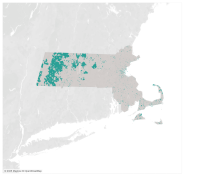
For more than two years, officials from the Port of Ridgefield in Washington have planned for better connectivity by deploying dark fiber. This month, they took a significant step by issuing a Request for Information (RFI) for Partnership as they search for entities interested in leasing dark fiber to bring services to the community. Responses are due March 15, 2019.
Rural or Not
In the spring of 2018, Washington’s elected officials eliminated a barrier that prevented the Port of Ridgefield from taking the final steps to completing their vision by passing HB 2664. The legislation removed a restriction that only allowed rural ports to use their fiber infrastructure for the types of partnership agreements that the Port of Ridgefield is now seeking. The “rural” limitation meant that Ridgefield and more populous ports could not use their fiber infrastructure to enter into partnerships for service to people or entities. With approximately 7,000 people in and around the city of Ridgefield, the Port of Ridgefield was not considered “rural.”
Officials from the Port of Ridgefield, the city of Ridgefield and other ports in Washington lobbied to have the law changed so they could provide wholesale services to interested Internet access companies. Governor Jay Inslee signed the bill in March 2018. While the primary goals of the RFI focus on improving connectivity within the port district, the Port also prominently includes, "The Port hopes this initiative will support and accelerate private providers’ efforts to improve broadband service options in the County."
The Port and the Plan
As part of the Discovery Corridor, Ridgefield has experienced rapid growth since 2000 and community leaders anticipate that trend to continue. Within the Discovery Corridor, the communities of La Center, Salmon Creek, Battle Ground, and local utilities have been involved in developing the plan. The Port of Ridgefield, like other ports in the state, are municipal economic development organizations; their function is to encourage the growth and economic vitality of the communities they serve. One of the areas that the Port of Ridgefield has found lacking and foresee as a potential problem, is poor connectivity.
New infrastructure is planned, including highways, sewers, and other roads, and developers are planning high levels of residential and commercial construction in the next few years within the Corridor. Clark College will be investing in a local campus and Washington State University Vancouver has announced plans for a medical in the area. All of the planned growth requires high-quality connectivity, which according to a 2017 Needs Assessment, is already lacking. According to a survey conducted as part of the Assessment, 76 percent of local organizations believe that they will need better connectivity within the next three to five years for business applications. More than half of the organizations that responded to the suvey indicated that they would be willing to pay more to get better services.
Local officials intend to satisfy the intense demand for better connectivity with the 42-mile fiber loop within the Discover Corridor. The primary goals are:
Enable the private sector to provide business-class data transport services at a competitive price to tenants of existing and planned economic development target areas in the Port District
Enable the private sector to provide competitive broadband service offerings to community anchor institutions (CAIs) in the Port District
Create opportunity and incentive for private entities to invest in last mile broadband infrastructure in the Port District to serve a wide range of residential, business, and institutional customers
Enable private sector broadband opportunity in the region, while securing sufficient dark fiber lease revenues from private sector fiber lessees as to enable a return on the Port’s fiber investment over a reasonable period of time
The network will pass planned economic development areas and many CAIs, but officials want to be flexible and encourage respondents to share specific needs or ideas for suggested route segments.
Important Dates:
Friday, Feb. 1, 2019 – Deadline for submitting LOI to respond to RFI
Friday, Feb. 8, 2019 – Deadline for submitting questions regarding RFI
Friday, Feb. 15, 2019 – Port posts responses to questions regarding RFI
Friday, March 15, 2019 – RFI responses due to Port







